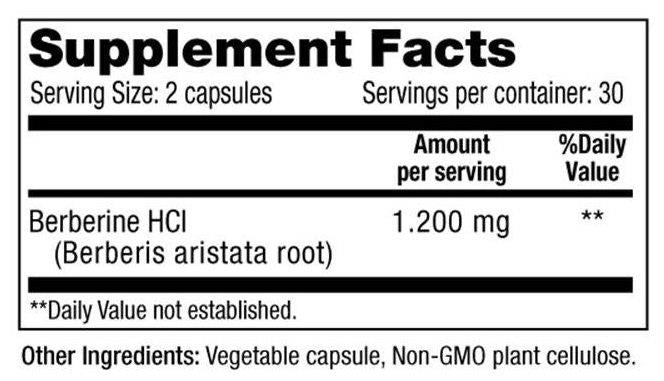Supplementing with Vitamin D Can Reduce Asthma Symptoms
According to a growing body of research, people with asthma may benefit from taking vitamin D.
Indeed, low or deficient levels could be to blame in the first place. Also, due to the vitamin’s anti-inflammatory properties, vitamin D can help calm inflamed asthmatic airways as well as reduce the risk of the common cold and other upper respiratory tract infections which can lead to asthma exacerbations (a flare-up of asthma symptoms needing steroid medication).
Read on to find out how research supports the use of oral vitamin D supplementation for the reduction of asthma flare-ups and emergency hospital treatment.
Vitamin D for Asthma in Adults and Children
In 2016, a Cochrane meta-analysis evaluated the role of vitamin D in the reduction of asthma exacerbation and general asthma symptoms in both children and adults.
The review was a ‘high-quality grade’ assessment and involved seven trials with 435 children and two trials with 658 adults. The participants were from diverse countries, cultures and backgrounds, the majority of whom suffered from mild to moderate asthma. The studies ranged from four to 12 months, and the patients continued to take their asthma medication throughout.
The research showed that vitamin D supplementation reduced the rate of emergency hospital treatment by half and proved effective in significantly reducing the risk of asthma exacerbations.
This particular vein of research was conducted mainly on adults, so while more evidence is needed overall, more studies in particular that involve children are required.
However, according to the Vitamin D Council, one recent study published in 2017 by Alansari et al. found that high dose vitamin D supplementation reduced asthma exacerbations in children by an impressive 300%. However, this was only noted in the first three months of a 12-month trial.
Causes of Vitamin D Deficiency
Low vitamin D levels are associated with living in Westernised countries and spending more time indoors
According to A. Litonjua, 2009, despite supplementing and living in sunny areas, low vitamin D status is a common issue in Western societies, due to shifting from outdoor activities to indoor ones.
The Vitamin D Council also links inner-city living (with increased exposure to air pollutants and decreased sun exposure), as well as people who are overweight and/or of African descent, with an increased risk of asthma. They also note that these factors are associated with lower vitamin D levels.
It is thought that low vitamin D status during pregnancy could also lead to childhood asthma. According to some research, pregnant or breastfeeding mothers, and newborns living in Western societies and inner-city areas, are at increased risk of deficiency which can lead to asthma in offspring.
A 2009 study linked an increased vitamin D intake during pregnancy with a decreased risk of asthma in children.
A 2017 study published in the Journal of Allergy and Clinical Immunology linked 4,400 IU of vitamin D3 per day during the second and third trimesters of pregnancy with increased immune function in newborns.
The researchers felt confident that this increased resistance to infection would encourage better respiratory health and decreased risk of asthma in these children.
What's the Ideal Vitamin D Dose?
The Vitamin D Council recommends that if you or your child have asthma, you should supplement with adequate amounts of vitamin D.
These doses need to be higher than 1,000 or ,2000 IU a day to create positive change and continued supplementation is encouraged to maintain high enough levels to avoid a relapse.
They also state that, overall, children respond more quickly than adults to supplementation (months for children as opposed to years for adults).
Opinions are mixed among researchers as to what the ideal dosage of vitamin D is for asthmatics, but the Vitamin D Council recommend taking doses as high as 10,000 to 15,000 IU per day for adults and 10,000 IU daily during pregnancy.
For children, they recommend 1,000 IU per day for every 25 lbs of body weight.
However, if you are concerned that you or your child have low vitamin D levels, it’s advisable to get them checked by your GP as soon as possible.
Conclusion
There does appear to be a link between vitamin D supplementation and a reduction of asthma exacerbations and subsequent hospital visits. It can also relieve general symptoms and help to prevent childhood asthma. However, not all research supports this and much more is needed.
Theories as to why include low vitamin D status as well as its anti-inflammatory, anti-allergic effects and the fact that vitamin D reduces the risk of upper respiratory tract infections, including the common cold which can aggravate asthma.
Supplementing in higher doses during pregnancy may help to reduce the risk of childhood asthma. If you are already asthmatic, higher doses of vitamin D are recommended to experience any benefits. Always check with your GP and get your levels tested before taking high doses.
Asthma aside, the general UK guidelines are to take a supplement during the winter months, and Public Health England recommends adults and children over the age of one take 10mcg of vitamin D daily.
We recommend Revitacell Vitamin D3 Drops, a liquid form of Vitamin D3 bound in natural organic oils for easy absorption into the body.
Water for Health Ltd began trading in 2007 with the goal of positively affecting the lives of many. We still retain that mission because we believe that proper hydration and nutrition can make a massive difference to people’s health and quality of life. Click here to find out more.



























Leave a comment